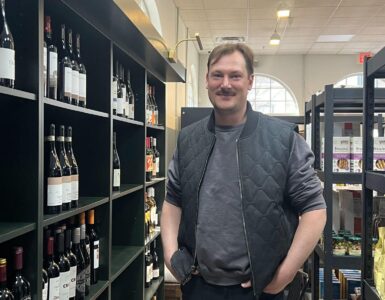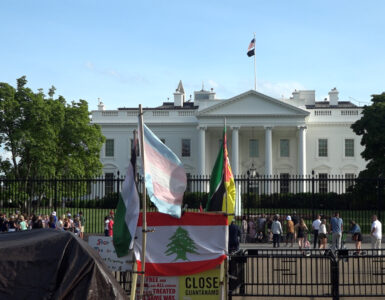D.C. Mayor Muriel Bowser Nov. 21 signed legislation emergency legislation that will allow advisory neighborhood commissions to continue holding virtual meetings through mid-February 2023.
The D.C. Council passed the bill, the Advisory Neighborhood Commissions Pandemic Provisions Extension Second Emergency Amendment Act of 2022 (Bill 24-1079), on Nov. 1.
Ella Hansen, a liaison to Ward 2 Councilwoman Brooke Pinto’s office, told a Nov. 1 meeting of ANC 2E that discussions are now underway about making the change permanent.
Shawn Hilgendorf, director of the council’s Committee on Government Operations and Facilities, told TheWash in an email that the council is looking at a couple of potential solutions, and confirmed the council’s intention is to work on legislation to make the policy permanent. At-Large Councilmember Robert White chairs the committee.
The emergency bill maintains the flexibility for ANCs to meet in-person, remotely, or in hybrid fashion as they see fit to best engage their communities, Hilgendorf said. At a legislative hearing Nov. 15, the council considered another bill that would provide a longer-term extension.
Hilgendorf said that, during the public health emergency, several of the ANCs around the city found that attendance and public engagement at remote meetings was much higher than they had seen at in-person meetings prior to the COVID pandemic.
According to Hilgendorf, some ANCs also found virtual meetings to be more efficient and easier for commissioners to balance their  commission duties with their jobs, personal lives, and childcare needs. However, other ANCs found that they lost engagement from members of their community that were less comfortable with technology and missed something from in-person engagement.
commission duties with their jobs, personal lives, and childcare needs. However, other ANCs found that they lost engagement from members of their community that were less comfortable with technology and missed something from in-person engagement.
Hilgendorf said the D.C. Council believes “both of those experiences are valid. We believe the future likely lies in hybrid meetings – and our Committee has provided funding to permit those as well. That said, our Committee firmly believes that ANCs themselves are best situated to understand whether their community is best served through remote, hybrid, or in-person meetings going forward.”
John Edwards, a partner at Bonstra Haresign Architects, must attend ANC meetings across the city frequently as part of the construction-permitting process.
Architects like Edwards interact with ANCs to gain approval for things such as zoning changes or historic preservation projects, and must take into consideration critiques made by commissioners.
“Once it went virtual, it made everything much, much easier. Since, I had control over the presentation – all they had to do was give me control over the Zoom and you could pull up all the materials that you need,” Edwards said.
“Beforehand, if you brought some materials with you on a thumb drive and someone from the commission or the audience asked a question that you needed some other material for, you didn’t necessarily have it and you would have to explain it,” Edwards said.
Edwards told TheWash that ANCs operated slightly differently throughout the city prior to the pandemic. “Sometimes you didn’t know where they were meeting, and you needed to make sure that the ANC had the technology to show what you needed to show, so, many times presenters had to print out large display boards propose their ideas,” he said.
“It’s much easier for people to participate, it’s much easier for the commissioners to participate, so you have better attendance all around. It’s much easier for people testifying to participate. I could have my entire design team, and my owners and supporters, all join on Zoom and doing that in person was a lot more of a hassle,” Edwards said.
With this greater flexibility, it is easier for commissioners, presenters, and residents alike to attend meetings, Edwards said, and shifted the need for individuals to worry about things such as seeking out childcare during these meetings, which are usually held in the evenings.















Add comment